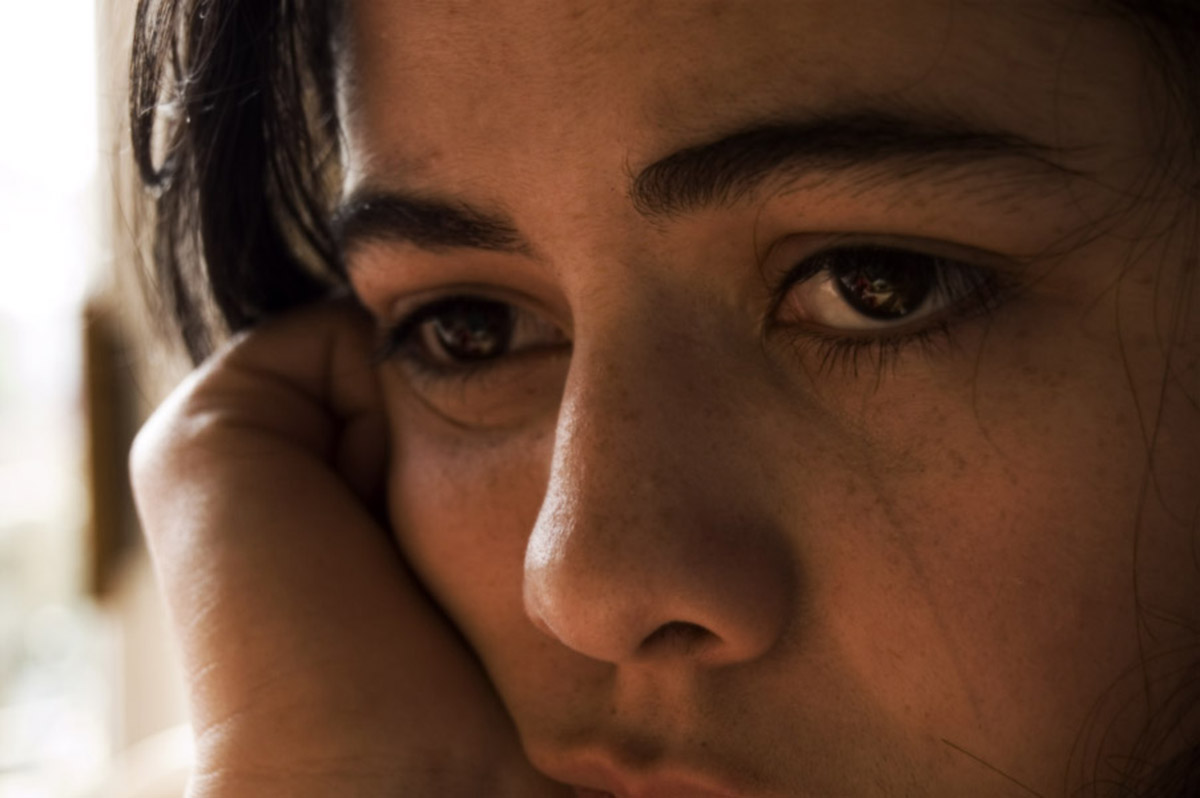Grief is, for such a universal human experience, extremely taboo. "After my husband died," Ari shares, "I really started to see my friends and relatives in a new light. I could divide them into three basic categories: there were the ones who were so afraid of me they stopped coming round, those who felt compelled to make cliche comments, and then, then there were the few people who were really there for me."

Cliche comments? "Oh, there were lots," Ari answers. "You're still young. You can find someone else. At least you have kids. Maybe it's for the best, he's not suffering any more now. And yes, then there was: oh, you're still not over that? That was a year after he passed away."
"We had excitedly told our two older kids about their new brother for months, and then we left the hospital without a baby," Janine told SteadyHealth. "Instead of celebrating, we had a funeral. And I felt I had to be there, to be strong, for my other kids. I said the baby had gone to Heaven to be with God, and because I didn't want to upset my other kids, I hid my grief to the point even I couldn't feel it. That's seven years ago now, and I'm just really starting to feel the pain now. I've finally sought therapy, because I dealt with my grief by pretending it didn't exist and that left its mark."
The Stages Of Grief
You may have come across "the stages of grief" before. This is also called the Kübler-Ross model, or alternatively known by the acronym of the stages — DABDA — and it was developed by Swiss psychologist Elisabeth Kübler-Ross in the 1960s. The stages of grief are as follows:
- Denial: You can't emotionally grasp that your loved one is gone forever, or you can't experience feelings of pain that accompany the loss. This initial stage actually helps many who just lost someone close to them deal with funeral arrangments and the aftermath of the person's death.
- Anger: Denial wears off, and other feelings take its place: "Why?", "No!", "This is so unfair!"
- Bargaining: This stage involves thinking about what could have been done to prevent the loss.
- Depression: 'Nuff said, really. Losing a loved one sucks, and it can make you depressed.
- Acceptance: You may notice you're having good days again, days during which the world isn't all that bad. You may even be thinking about the future again.
If you're grieving, this is your grieving process. While nobody gets to tell you how you should feel and when, and you shouldn't try to make yourself feel a certain way either, there are health and unhealthy ways to deal with grief. On the next page, we'll look at both.
Healthy Vs Unhealthy Grieving Behaviors
How Not To Grieve
Grief is the natural result of all kinds of losses, from the death of a loved one to a breakup with your partner, or experiencing a traumatic event that changed your life dramatically. Grief comes with difficult emotions, emotions like sadness, deep pain, and anger. Some of us seek ways to avoid feeling those emotions because they are too difficult to bear, while others experience external pressure not to display the pain they feel inside. These circumstances can lead us to deal with grief in very unhealthy ways.

Actively trying to avoid emotional pain by burying yourself in work, other activities, or drinking too much can be extremely tempting but also leads to unresolved feelings in the future (not to mention liver disease and a myriad of other issues, in case of alcohol). Putting on a brave face because others in your circle think you should be "over it by now" or because you don't want to burden others is also a bad idea.
Wallowing in self-pity, isolating yourself from others who are there to help, and avoiding anything that may actually help you see the positive side of life out of guilt are also unhealthy approaches to grief. So, what should you do instead?
Your Grieving Process
Your grieving process doesn't follow a set timetable, and you're allowed to grieve as long as you want to. If you're the kind of person who processes difficult emotions best by sharing with others, don't be afraid to share what you're going through with supportive friends and relatives. If that's not an option, online or in-person support groups, or grief counseling, can help. Some people would rather process difficult emotions in solitude. In this case, online support groups may still help you — you're sharing with strangers, in the comfort of your own space, behind your computer. You may also like to keep a journal.
While you're in the midst of grieving, it's important to take care of your physical self as well. Don't forget to eat or indulge in overeating. Exercising three or four times a week will help you stay in shape, and can also get those anti-stress hormones flowing. Make sure to get enough sleep (you may ask for medication to help you with that if it's not happening naturally), and once again, do not bury your feelings by using alcohol, or drugs for that matter.
READ Why Mindfulness Doesn't Suck (Even If You're A Down-To-Earth Skeptic)
Sit with those emotions. Invite them in, while reflecting on the past. And be prepared for the road up ahead — you will start to feel joy again, you will notice that there are moments in life that aren't so bad. But also, you will be triggered by anything that reminds you of your loss. That's OK too. To help with triggers if you lost someone to death, you may find it meaningful to talk about your lost loved one on anniversaries, to visit their grave or a favorite place of theirs, or to throw a party or memorial service in their honor.
- Photo courtesy of JoePenna via Flickr: www.flickr.com/photos/pennajoe/2539202649
- Photo courtesy of Helga Weber via Flickr: www.flickr.com/photos/helga/4723657763

